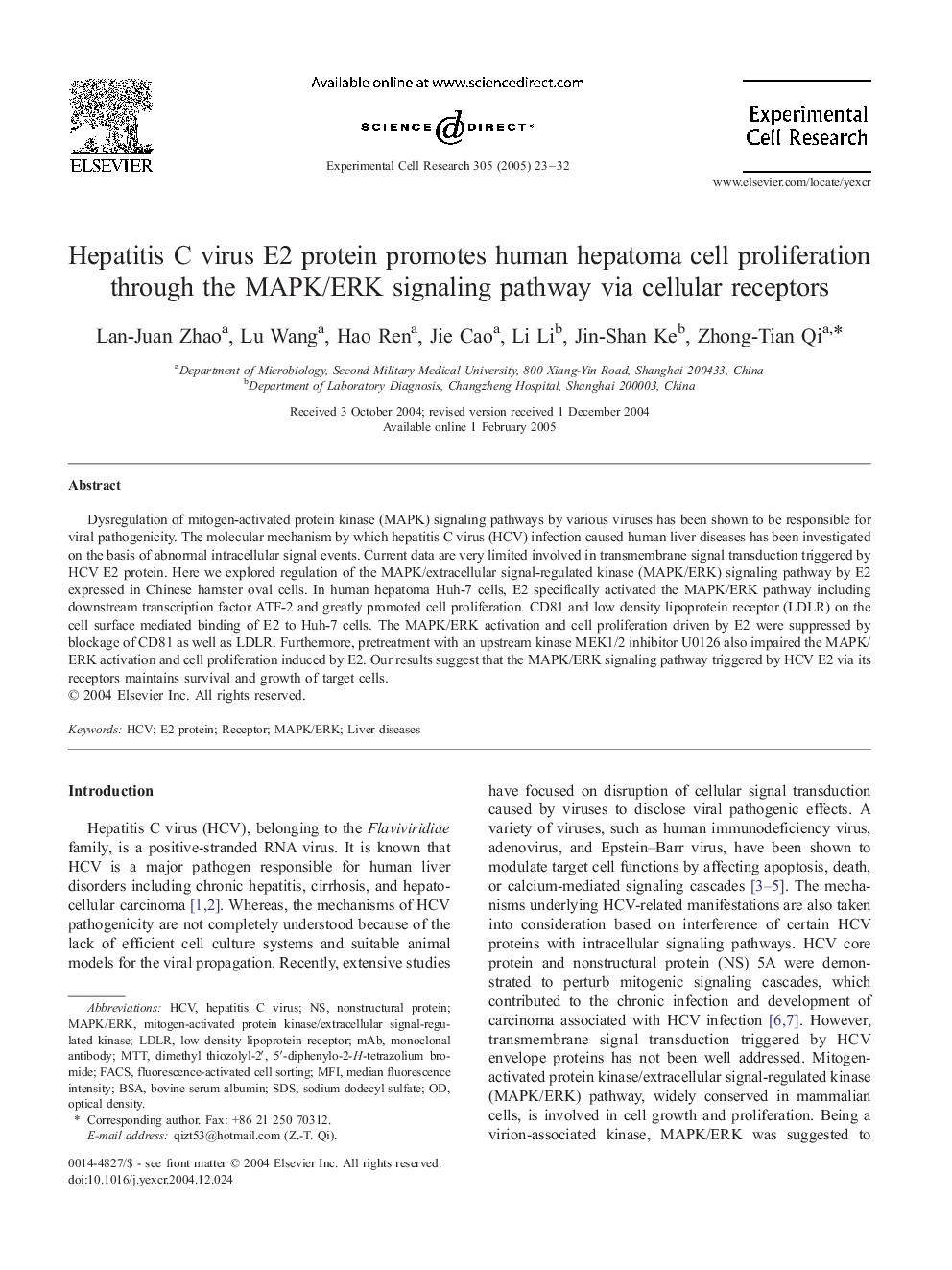| Article ID | Journal | Published Year | Pages | File Type |
|---|---|---|---|---|
| 10905453 | Experimental Cell Research | 2005 | 10 Pages |
Abstract
Dysregulation of mitogen-activated protein kinase (MAPK) signaling pathways by various viruses has been shown to be responsible for viral pathogenicity. The molecular mechanism by which hepatitis C virus (HCV) infection caused human liver diseases has been investigated on the basis of abnormal intracellular signal events. Current data are very limited involved in transmembrane signal transduction triggered by HCV E2 protein. Here we explored regulation of the MAPK/extracellular signal-regulated kinase (MAPK/ERK) signaling pathway by E2 expressed in Chinese hamster oval cells. In human hepatoma Huh-7 cells, E2 specifically activated the MAPK/ERK pathway including downstream transcription factor ATF-2 and greatly promoted cell proliferation. CD81 and low density lipoprotein receptor (LDLR) on the cell surface mediated binding of E2 to Huh-7 cells. The MAPK/ERK activation and cell proliferation driven by E2 were suppressed by blockage of CD81 as well as LDLR. Furthermore, pretreatment with an upstream kinase MEK1/2 inhibitor U0126 also impaired the MAPK/ERK activation and cell proliferation induced by E2. Our results suggest that the MAPK/ERK signaling pathway triggered by HCV E2 via its receptors maintains survival and growth of target cells.
Keywords
mitogen-activated protein kinase/extracellular signal-regulated kinaseFACSLDLRMFImAbSDSBSAMAPK/ERKMTTbovine serum albuminMonoclonal antibodyLiver diseasesfluorescence-activated cell sortingsodium dodecyl sulfatemedian fluorescence intensitynonstructural proteinHCVHepatitis C virusE2 proteinoptical densityReceptorlow density lipoprotein receptor
Related Topics
Life Sciences
Biochemistry, Genetics and Molecular Biology
Cancer Research
Authors
Lan-Juan Zhao, Lu Wang, Hao Ren, Jie Cao, Li Li, Jin-Shan Ke, Zhong-Tian Qi,
